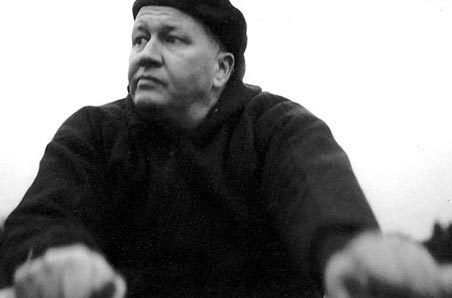|
|
Online Poems |
|
I Knew a Woman
by Theodore Roethke
I knew a woman, lovely in her bones,
When small birds sighed, she would sigh back at them;
Ah, when she moved, she moved more ways than one:
The shapes a bright container can contain!
Of her choice virtues only gods should speak,
5
Or English poets who grew up on Greek
(I'd have them sing in a chorus, cheek to cheek).
How well her wishes went! She stroked my chin,
She taught me Turn, and Counter-turn, and Stand;
She taught me Touch, that undulant white skin;
10
I nibbled meekly from her proffered hand;
She was the sickle; I, poor I, the rake,
Coming behind her for her pretty sake
(But what prodigious mowing we did make).
Love likes a gander, and adores a goose:
15
Her full lips pursed, the errant notes to seize;
She played it quick, she played it light and loose;
My eyes, they dazzled at her flowing knees;
Her several parts could keep a pure repose,
Or one hip quiver with a mobile nose
20
(She moved in circles, and those circles moved).
Let seed be grass, and grass turn into hay:
I'm martyr to a motion not my own;
What's freedom for? To know eternity.
I swear she cast a shadow white as stone.
25
But who would count eternity in days?
These old bones live to learn her wanton ways:
(I measure time by how a body sways).
1957
![]()
Discussion questions:
1. What's Romantic (or not) about the poem?
2. What gothic or sublime elements are identifiable? What mood or tone do they build?
3. Given that the poem is written during the Modern or postmodern era, how may "I Knew a Woman" transcend Romanticism to become Modern(ist) or something else (maybe Realistic?)?
4. Discuss this poem's form as "free verse" or "formal verse"; relate to Romanticism or Modernism? Why is the lyric poem the essential genre of Romanticism?


